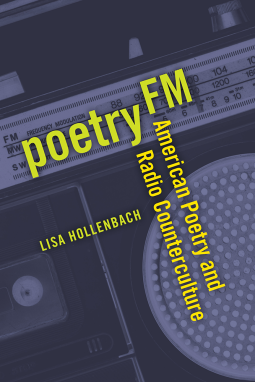
Poetry FM
American Poetry and Radio Counterculture
by Lisa Hollenbach
This title was previously available on NetGalley and is now archived.
Send NetGalley books directly to your Kindle or Kindle app
1
To read on a Kindle or Kindle app, please add kindle@netgalley.com as an approved email address to receive files in your Amazon account. Click here for step-by-step instructions.
2
Also find your Kindle email address within your Amazon account, and enter it here.
Pub Date May 12 2023 | Archive Date May 12 2023
University of Iowa Press | University Of Iowa Press
Talking about this book? Use #PoetryFM #NetGalley. More hashtag tips!
Description
LITERARY CRITICISM / MEDIA STUDIES
Poetry FM is the first book to explore the dynamic relationship between post-1945 poetry and radio in the United States. Contrary to assumptions about the decline of literary radio production in the television age, the transformation of the broadcasting industry after World War II changed writers’ engagement with radio in ways that impacted both the experimental development of FM radio and the oral, performative emphasis of postwar poetry.
Lisa Hollenbach traces the history of Pacifica Radio—founded in 1946, the nation’s first listener-supported public radio network—through the 1970s: from the radical pacifists and poets who founded Pacifica after the war; to the San Francisco Renaissance, Beat, and New York poets who helped define the countercultural sound of Pacifica stations KPFA and WBAI in the 1950s and 1960s; to the feminist poets and activists who seized Pacifica’s frequencies in the 1970s. In the poems and recorded broadcasts of writers like Kenneth Rexroth, Jack Spicer, Allen Ginsberg, Amiri Baraka, Audre Lorde, Pat Parker, Bernadette Mayer, and Susan Howe, one finds a recurring ambivalence about the technics and poetics of reception. Through tropes of static noise, censorship, and inaudibility as well as voice, sound, and signal, these radiopoetic works suggest new ways of listening to the sounds and silences of Cold War American culture.
Advance Praise
“Engaging, engrossing, and exuberantly readable, Lisa Hollenbach’s Poetry FM plumbs a largely unexamined archive to brilliantly illuminate postwar poetics, redefining our understanding of the ‘FM Revolution’ by demonstrating how Pacifica Radio enabled new poetic-political collectives and counter-publics.”—Debra Rae Cohen, coeditor, Broadcasting Modernism
“This book is a major contribution to the field, given it argues convincingly for the politics, culture, and technologies of postwar alternative radio as a force that informed and shaped a range of experimental and radical poetries from the 1940s through the 1980s.”—Daniel Kane, author, All Poets Welcome: The Lower East Side Poetry Scene in the 1960s
Available Editions
| EDITION | Other Format |
| ISBN | 9781609388911 |
| PRICE | $90.00 (USD) |
| PAGES | 264 |
Links
Available on NetGalley
Average rating from 2 members
Featured Reviews
In the age of the internet (and before that, television), radio was the form of mainstream media. Like our media today, it shaped the way people viewed the world. In this account of the airways post-World War II, we focus on poetry and the dawn of FM.
Focusing mostly on the 1950s-1960s, Lisa Hollenbach lays out a history of radio poets such as Allen Ginsberg, Susan Howe, and several others, their impact on society, and the struggles they such as censorship and politics. Naturally, there's a focus on the Cold War era as well.
I can't say I was engaged from start to finish, but I definitely found the book informative. I learned a lot and it's a section of history I've never given much thought to. I was impressed that I did know some of the names mentioned here. Given it's under 300 pages, it's not a taxing read yet doesn't feel like it's leaving out large sums of information.
Thanks to NetGalley and University of Iowa Press for providing me with a free digital ARC to read and review!



